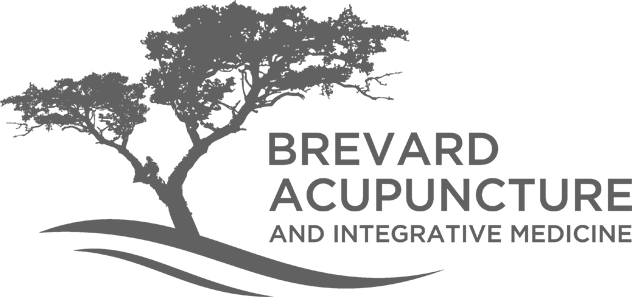Jema Pamintuan, PhD
Though a lot of people consider music as a form of entertainment and recreation, various studies and historical literature have proven music’s role in stress relief and rehabilitation. Music as a vital part of healing and therapy has been used in different cultures. Shamans and indigenous healers from different parts of the world use music and vocal chants in healing rituals. Native American healers create healing methods via dreams, and use music to cure illnesses within the dream realm.1
A program was established by the Office of the Surgeon General that uses music as rehabilitation and reconditioning support among soldiers in the United States Army hospitals, back in 1945.2 According to the study, music was used in occupational therapy and physical reconditioning. Music provided an outlet for expression of feelings and processing of memories brought about by experiences in the field. And this allowed the wounded and injured to cope with distress and deal with trauma. Music therapy programs are still in operation in different military and VA healthcare facilities across the country, some of which include the Institution for Therapy through the Arts at the Music Institute of Chicago, the Walter Reed National Military Medical Center in Maryland, and Davis-Monthan Air Force Base in Arizona.3
French musician and acupuncturist Fabien Maman4 developed a form of sound therapy where he uses tuning forks on acupuncture points. This is based on the hypothesis that human cells respond to vibrations and sound frequencies.5 Interestingly, the tuning fork does what its name suggests, it “tunes and harmonizes” the body, and balances its energy, helping the cells be healed in the process.
There are different options to maximize music’s benefits: listen to it, play it, or sing it. Studies have shown how these are good for one’s health.
Listening
The benefits of music therapy can be readily accessible to everyone, even if these can be fully maximized with a professionally trained music therapist. Whatever genre of music it is, depending on one’s taste and preference, listening to music can easily be a form of relaxation. It takes away one’s exhaustion, calms the mind, enhances the mood, counteracts negative emotions, and washes away aches and worries. This can manifest in the body by reducing muscle tension, improving one’s breathing and quality of sleep. Music can also accompany one’s exercise routine and give the much needed motivation and inspiration to do physical activity.
Research shows how music can also be used as a clinical intervention in cancer and pain centers for ichronic pain management through sensory stimulation6; essentially providing a calming distraction from pain and aiding in rhythmic breathing. Music also reduces discomfort, uplifts the spirits, and improves the patients’ quality of life while coping with the illness.
Playing musical instruments
Those times when your parents forced you to attend your piano or violin lessons may have a pay-off later in life, according to a study conducted by the American Psychological Association.7 The study involved 70 adults (ages 60-83) and were divided into groups based on musical education and experience. Those who played music scored higher in cognitive tests compared to those who did not read music or study an instrument. Even if the participants were not playing music anymore, the study showed that the benefits of learning music can extend up to decades in a person’s life.
A McGill University study also supported the correlation between musical activity and mental sharpness, and proved how music can stimulate and retrain parts of the brain that are underactive in emotional and neurological disorders.8 Playing an instrument can improve long term memory and motor control, which is why it is also recommended to dementia and Alzheimer’s patients9. The piano keys we play, the flute holes we cover, and the pads we drum have to be in sync with our sense of rhythm and sound. Playing music entails coordination between and among senses of sight, hearing, and touch; it is a complex and challenging activity which helps the brain become more fit and alert. This then allows the music-player to be better at multitasking, processing, and retaining information.
Aside from strengthening one’s mental capacity, Suzanne Hanser, chair of the music therapy department at the Berklee College of Music in Boston, added that playing music can also decrease the heart rate, lower blood pressure, reduce anxiety and stress, and help boost the immune system.10
Here’s a website that might also be helpful for those of us exploring to learn an instrument: https://drumsandguitar.com/lessons/benefits-playing-instrument.
Singing
Our voices do have their own healing potencies. Indigenous healers from around the world use their voices by chanting incantations as they perform healing rituals on the sick. Yoga teachers and students use the “om”11 sound in their practice, to create a serene practice space and calm their minds. Lullabies are sung to babies to soothe them and help them sleep. Or we simply sing as a form of release, while some even aim for emotional catharsis.
Here is one humming technique12 shared by a vocal teacher, which, according to her, proved to be beneficial in relieving one’s anxiety:
“Take a moment to centre yourself, take a few breaths and begin to be aware of your surroundings and yourself within them. Focus in on your breath. Close your eyes and mouth and start humming on a low pitch, feel the sound resonate within you. Spend several minutes humming (ideally 5) and see how you feel.”
The vocal teacher added that low pitches tend to relax the nervous system, release muscle tension, and create an internal massage for the body. This humming technique can also help the person be mindful of the present, enhancing his/her mental functioning and increasing emotional regulation.
A study13 on the relationship between choral singing and physiological changes in the singers’ immune system was published in 2000. Samples of saliva were collected from the choral members, and one of the findings of the study was how Immunoglobulin A, an antibody, significantly increased after the singers’ rehearsal session. There are other studies14 that prove how singing can also be good for the heart, since it requires breathing exercises and patterns that could slow down one’s heart rate.
So each time you pick up a microphone at a karaoke bar or simply sing your heart out in the shower, remember you are doing yourself a favor and may actually be singing yourself back to health.
Notes:
1 See http://www.faena.com/aleph/articles/sound-ritual-healing-through-ancient-indian-song/. Accessed on 10 July 2018.
2 For details, see “Music Therapy and Military Populations: A Status Report and Recommendations on Music Therapy Treatment, Programs, Research, and Practice Policy.” American Music Therapy Association, 2014.
3 Ibid.
4 https://tama-do.com/roothtmls/aboutfabien.html. Accessed on 10 July 2018.
5 Webster’s New Encyclopedic Dictionary (1993) defines sound therapy as treatment based on the finding that human blood cells respond to sound frequencies by changing color and shape, and the hypothesis that therefore sick and rogue cells can be healed or harmonized by sound.
6 See https://www.everydayhealth.com/pain-management/music-therapy-for-pain-management.aspx. Accessed on 9 July 2018.
7 http://www.apa.org/news/press/releases/2011/04/music-lessons.aspx. Accessed on 13 July 2018.
8 See https://www.howtolearn.com/products/mozart-effect/. Accessed on 10 July 2018.
9 According to lead researcher Brenda Hanna-Pladdy of the University of Kansas medical center, studying an instrument rmay create alternate connections in the brain that could compensate for cognitive declines as we get older.” In https://www.livescience.com/40597-playing-musical-instrument-good-health.html. Accessed on 10 July 2018.
10 https://www.livescience.com/40597-playing-musical-instrument-good-health.html. Accessed on 10 July 2018.
11Among the definitions of “om” are the ff: a sacred sound, the sound of the universe, and may represent all of consciousness; potent sounds that correlate to each chakra. See more at https://www.huffingtonpost.com/kripalu/meaning-of-om_b_4177447.html. Accessed on 13 July 2018.
12 https://www.britishacademyofsoundtherapy.com/the-healing-power-of-your-voice/. Accessed on 10 July 2013.
13 See “Choral Singing, Performance Perception and Immune System Changes in Salivary Immunoglobulin A and Cortisol” by Beck, Cesario et.al. From Music Perception, Fall 2000, Vol. 18 no. 1, 87-106. https://www.jstor.org/stable/40285902?seq=1#page_scan_tab_contents. Accessed on 13 July 2018.
14 See “6 Ways Singing is Surprisingly Beneficial to One’s Health.” From https://www.prevention.com/health/a20511082/6-health-benefits-of-singing/. Accessed on 16 July 2018.


